Have a fun, safe & enjoyable holiday with our Mexico travel guide!
Mexico is a stunning country located between the U.S. and Central America, known for its historic ruins, gorgeous beaches and drool-worthy food. People from all over the globe flock to Mexico for its all-inclusive coastal resorts, world-class snorkelling and diving, and colourful culture. Mexico is a place of extremes, making it a fascinating country to visit.

Before we go through all the things you might need to be careful of, here are some things that are not to be missed while visiting Mexico.

Mexico is known for its ancient ruins scattered across the country. Getting a look into what life was like many years ago is a must-see. Put the Mayan pyramids in Tulum at the top of your to-do list. The Chichen Itza ruin is the most visited Mayan ruin.

If you happen to be in Mexico on November 1st and 2nd then you're in luck. The Day of the Dead is a 3000-year old ritual where Mexicans celebrate their loved ones that have passed on. The celebration involves music, thousands of peple, painted faces, masks and brightly coloured decorations.

Mexico is recognized as a major foodie destination. The diversity of the food ranges from place to place so explore as much as you can to get the best Mexican foodie experience. You can't go wrong with authentic tacos and margaritas!

Mexico is often visited for its beaches, resorts and water activities but some people often forget about the capital - Mexico City. With its world-class museums, art galleries and national parks it's a spot you don't want to miss.

There are a wide array of adventurous activities to dive into (literally) while visiting Mexico. Water activities are most popular as the crystal clear water and diverse sea life is an invitation for snorkelers and divers. You can even venture into the underground caves if you're daring.

Mexico is famous for its all-inclusive, affordable, resorts. Filled with so many activities and restaurants that you don't have to venture outside if you don't fancy- but we think you should! If you're looking for a relaxing getaway with your friends and family then this is the place!
Before you go booking your vacation to Mexico, make sure you are aware of what you need to get in.
 Australians need a valid passport to enter Mexico and should be valid for at least 6 months before arrival.
Australians need a valid passport to enter Mexico and should be valid for at least 6 months before arrival.
 If you're visiting for 180 days or less as a tourist, you'll receive a visa on arrival. To avoid being detained or deported, you must complete an online Multiple Immigration Form (FMM) and obtain a QR code
If you're visiting for 180 days or less as a tourist, you'll receive a visa on arrival. To avoid being detained or deported, you must complete an online Multiple Immigration Form (FMM) and obtain a QR code
 Make sure immigration officials stamp your passport on arrival, as this will state the number of days your visa will be valid. Entry and exit conditions can change at short notice.
Make sure immigration officials stamp your passport on arrival, as this will state the number of days your visa will be valid. Entry and exit conditions can change at short notice.
Be careful what you bring into the country too – Mexico customs can be strict and you want to be prepared so there are no issues entering the country:
 Liquor or wine - up to 3 litres per person
Liquor or wine - up to 3 litres per person
 Cigars and cigarettes - up to 20 packs per person.
Cigars and cigarettes - up to 20 packs per person.
Importing electronic cigarettes and vaping devices is also prohibited
 Medical supplies for personal use (a medical prescription is required if these contain narcotic substances)
Medical supplies for personal use (a medical prescription is required if these contain narcotic substances)
You can find more information of what you can and can’t bring to Mexico here.

Calling home is never cheap when calling from another country but when needed it won’t be hard to get your hands on a SIM card. Many Australians opt for a roaming sim card that they organise before they leave. Check out Roam Mobility for great service and competitive rates. The major national operators in Mexico include:
0011 + 52 + Area Code - Land phone number.
0011 + 52 + Mobile phone number.
0011 – Exit code for dialling International numbers from Australia.
52 - Country Code of Mexico.
Area codes: e.g. 998 - Cancun, 624 - Cabo San Lucas
For a full list of Mexican area codes visit here.

00 + 61 + Area Code - Land phone number.
00 + 61 + Mobile number.
00 - Exit code for dialling international numbers from Mexico.
61 - Country Code of Australia
Area codes: e.g. 02- NSW, 03- Victoria
For a full list of Australian area codes click here.
Except for the police, there is no unified emergency number system across Mexico, however, in most states the following emergency numbers are used:
![]() 911 - Police (in all Mexican states this number will get you in contact with the police)
911 - Police (in all Mexican states this number will get you in contact with the police)
![]() (+52 55) 1101 2200 - Embassy of Australia in Mexico City.
(+52 55) 1101 2200 - Embassy of Australia in Mexico City.
![]() 911 - Fire
911 - Fire
![]() 911 - Ambulance/Red Cross
911 - Ambulance/Red Cross
Most Mexico airports will have a range of transportation methods available, however, the number of options may vary depending on the airport you arrive to. Mexico City and Cancun airport are the largest international airports and will have more options available to get you to your next destination:
Mexico City has the 2nd largest metro system in North America and is a great way to get around the city. There is a metro station available at Terminal 1.
Taxis are available on demand as you exit the airport. It is important to make sure you get in an authorised airport taxi. Some authorised companies include: Yellow Cab Aeropuerto, Porto Taxi and Nueva Imagen.
Most airports, especially the larger ones, will have a shuttle bus service available from the airport that will take you to hotels and popular spots. Be sure to check if they stop at your destination.
Local city buses are a suitable option to get around the city and coaches are great for long distance travel. During high season it is recommended that you purchase your ticket ahead of time.

Mexico's currency is the Peso. Be sure to check the exchange rates before you head down south to avoid any surprises:

The Australian Government issue travel warnings for destinations depending on the security issues at hand. You can find them at the SmartTraveller website.
Mexico is a relatively safe place but some areas have higher caution than others. It is always best to check your destination before you travel. You should exercise caution at all times, and be wary of venturing into any areas that feel unsafe.
 Drug related violence is Mexico's most prevalent criminal activity and has led to the deaths and disappearances of many locals and tourists.
Drug related violence is Mexico's most prevalent criminal activity and has led to the deaths and disappearances of many locals and tourists.

Murder rates in Mexico have risen in the past year. The central state of Mexico, which includes Mexico City, had the highest murder rate in 2015.
 Kidnapping in Mexico have been a common occurrence in the past and continues to be a problem. Travellers are usually the target of this crime.
Kidnapping in Mexico have been a common occurrence in the past and continues to be a problem. Travellers are usually the target of this crime.

Carjackings and highway robberies are a serious problem in parts of Mexico and happen more frequently at night and on isolated roads. Avoid travelling at night outside major cities
Mexico is usually at the top of the list of best places to go and celebrate and party. Spots like Cancun and Los Cabos host massive events during the month of March and throughout the year catered for students and young adults to let loose during spring break. Sometimes these good times can enter risky territory. Here are some safety tips to stay healthy and make sure you follow the local laws:

Don't consume too much alcohol in a short amount of time. It's easy to get ahead of yourself but alcohol poisoning is real and is very common, especially with younger travellers.

Mexico is known to have infected mosquitos that can carry illnesses like Malaria, Dengue fever, Chikungunya and the Zika virus. These illnesses can all be transmitted via a single bite, so be extra careful. Make sure you are up to date with your vaccines before your trip.


The massive crowds can leave you at risk for drink-spiking. Make sure you keep an eye on your drink at all times.
The Drug Cartels in Mexico have a long and violent history and continues to be a problem till this day. Drug-fuelled violence has not only harmed many Mexicans, but tourists as well. It's important to stay informed and follow these safety tips:
 Keep tabs on the Australian Embassy website for travel updates and advisories in Mexico. They will inform you which areas to stay away from.
Keep tabs on the Australian Embassy website for travel updates and advisories in Mexico. They will inform you which areas to stay away from.
 When travelling from one destination to another, it is recommended to take direct routes and avoid driving on remote highways.
When travelling from one destination to another, it is recommended to take direct routes and avoid driving on remote highways.
 Travel in groups at all times. It is highly recommended that you don't walk around alone, especially at night.
Travel in groups at all times. It is highly recommended that you don't walk around alone, especially at night.
 If you are offered drugs on the street do not engage, walk away and don't make eye contact. Keep an eye out in case drugs are planted on you.
If you are offered drugs on the street do not engage, walk away and don't make eye contact. Keep an eye out in case drugs are planted on you.
Mexican culture and customs are very different to those in Australia and when you are travelling you will notice a lot of the differences. Make sure you're in the know to avoid any embarrassing situations.
Did you know that in Mexico City to get a driver's license all you need to do is fill out a form and voila! You have a driver's license.

The official language in Mexico is Spanish. As a tourist it may be helpful to learn a few common phrases before you go so you can find your way when outside hotels or resorts.

Mexico has its own authentic world-wide known cuisine. Known for its flavour and colour, it is very different to typical Australian cuisine.
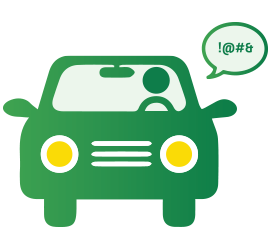
Drivers in Mexico are known to be pretty crazy. People will run through red lights and disregard pedestrian crossings. It’s worth being extra careful as a driver or a pedestrian.
Getting scammed can happen anywhere, but when you’re a tourist in a new city you’re often a prime target for scams. Read up on the scams you need to know about and you should be A-OK!

Wearing expensive jewellery, watches or displaying large amounts of cash may attract unwanted attention. Leave these things out of site otherwise you may face loosing them.

Credit card theft and fraud is common amongst tourists. Simple distraction techniques or hidden electric devices are used to steal your card information.

The legal drinking age in Mexico is 18. If you are a young adults travelling remember to not go overboard, it's easy to become a target if you've had to many.

As with any travel destination, there are areas to be avoided as they can be unsafe, especially for tourists. Inner city areas can be dangerous with incidences of muggings, kidnapping and assaults. Always stay in busier areas and don’t go wandering around inner cities at night.

Be cautious of taking public transport at night. Theft and hijacking on buses is common in some areas. Try and take well-known first-class buses or coaches that will drive on toll roads.

Pickpockets are a problem anywhere you go, especially in crowded areas. Keep your valuables in a zipped pocket, purse or at the hotel in a secured safe.
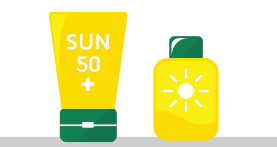
If you’re heading to Mexico you are obviously going there with the intent to soak up some sun, however, don't soak up too much as it can lead to sunburn.
How to avoid sunburn:
Mexico is known for unsafe tap water, and there’s nothing worse than getting sick while on vacation. Co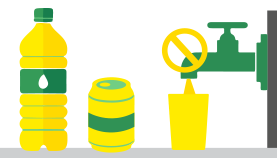 ntaminated water can lead to a lot of health problems so make sure you know how to avoid it and how you can get clean water. Here are some tips:
ntaminated water can lead to a lot of health problems so make sure you know how to avoid it and how you can get clean water. Here are some tips:
Mexico is the Spring Break capital and is known to have a party-heavy lifestyle, even during the off season. 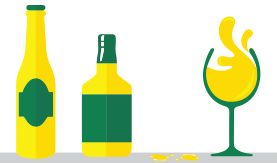 People can get carried away while on vacation, especially when drinking too much, which will lower your inhibitions and impair your judgement. Here are some tips to stay safe:
People can get carried away while on vacation, especially when drinking too much, which will lower your inhibitions and impair your judgement. Here are some tips to stay safe:
Most tourists flock to Mexico for the sunny weather, assuming it's hot all year long but this isn’t the case. Mexico is a big country and the weather can vary from one destination to another. Mexico typically experiences two distinct seasons.

Mexico experience a range of natural disasters like hurricanes, tornados, volcanoes, floods, earthquakes and other different types of storms. Be sure to check the forecast before you leave so you don't get stuck in any of those weather conditions. If the situation changes while you are out there, we may be able to help, keep up to date with our travel alerts.



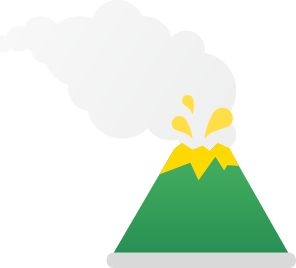
*For more information on natural disasters in Mexico click here.
There are countless gorgeous beaches all over Mexico. Be aware of the risks whenever you enter the water.
Always take note of any flags which are posted up at the beach. They have different meanings to the ones you might see back home.
Black flags are the highest warning level and mean you shouldn't enter the water under any circumstances.
This flag means the water conditions are rough but are not life-threatening and can be entered with extreme caution.
This means that the threat of danger is minimal and indicates that it is safe to swim in the water.
The green flag indicates that the water conditions are safe to swim in, though you should always be cautious.

Your passport is your ticket to ride so try not to lose it down the back of a couch, or leave it in the back of a taxi. Follow these handy steps if you do lose your passport.

Seems simple right? But sometimes your passport may have been left at the last place you stayed so call the hotel.

If you are unable to find it after searching far and wide (or you know for a fact it was stolen) then you need to report it to the government.

Things you will need to do in order to get a replacement passport include: an application form, photos and possibly booking an interview.

Of it occurring. Ensure you get a police report documenting the loss or theft. You will need this report to make a travel insurance claim.

Report the claim as soon as you can. That way you can confirm cover and seek advice.
 Embassy of Australia
Embassy of Australia
(+52 55) 1101 2200
 National Immigration Office
National Immigration Office
If something serious happens and you find yourself severely sick or injured, you’re going to need to get to a hospital, and fast. Always make yourself aware of your nearest hospital, just in case.
Mexico and Australia do not have a reciprocal healthcare agreement which means that you can’t use their health services, hospitals or GP services unless you pay.
As soon as you’re able to, contact your travel insurer. 1Cover has medical professionals ready to take calls 24/7. You can also confirm your coverage and then let the insurers and the hospital worry about the financials. If you’re prescribed medicine you may need to pay for it at a pharmacy and then speak to your travel insurers on your return.
 Medical Emergency
Medical Emergency
911
 Local Directory Enquiries
Local Directory Enquiries
040
 Local Operator Assistance
Local Operator Assistance
020
 CIMA Hospital Hermosillo
CIMA Hospital Hermosillo
+52 662 259 0900
 Hospital Angeles in Tijuana
Hospital Angeles in Tijuana
+52 664 635 1800
 CIMA Hospital Monterrey
CIMA Hospital Monterrey
+52 81 8368 7777
 Hospital Hispano Americano +52 686 552 2300
Hospital Hispano Americano +52 686 552 2300
 Amerimed Hospital Puerto Vallarta
Amerimed Hospital Puerto Vallarta
+52 322 226 2080
 Hospital Star Medica Ciudad Juarez
Hospital Star Medica Ciudad Juarez
+52 656 227 5700
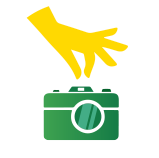
Don’t panic (and don’t fight back if you are aware of the robbery). Your camera isn't worth as much as your life so best not to risk it.

Contact the Australian Embassy office to get assistance if needed, such as if you have troubles with the local police.

Report stolen keys to your hotel. Replacement keys and locks may need to be arranged.
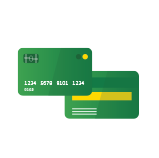
Cancel all credit cards and report them stolen to your bank.

Find the nearest police station and report the incident, and obtain a police report within 24 hours.

If all your cash and access to money was stolen, you can arrange for a money transfer from someone back home.

Call your insurance provider and let them know what’s happened. As well as getting advice and guidance, you can ask any questions you might have about your level of coverage.

Last but not least stay positive. Theft can happen to even the savviest of travellers.
